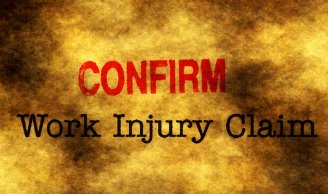Legal Practice Areas
Job Related Injuries

Nobody expects to be injured at work, but it does happen more often than you might think. And if it has happened to you, it’s not necessarily your fault. Your employer is generally responsible for your safety. This means if you experience job related injuries, your employer may be responsible for covering your medical bills as well as any lost wages you may have incurred as a result of your injury.
Most states require employers to carry worker’s compensation insurance for this very reason. Employers know that job related injuries are a high probability, and the worker’s compensation insurance exists to cover those costs.
Most states require employers to carry worker’s compensation insurance for this very reason. Employers know that job related injuries are a high probability, and the worker’s compensation insurance exists to cover those costs.
As with any type of insurance, the more an employer has to pay out for claims, the higher their premiums rise. So it goes without saying that employers will do anything they can to get out of taking responsibility for job related injuries.
And, since employers have likely been involved in multiple worker’s compensation claims, they will know more than you about what they can get away with. They might say anything to get you to believe they are not responsible, and even lie to you hoping that you will drop your claim.
What does worker’s compensation insurance cover?
Worker’s compensation insurance will pay a portion of your regular wages while you are recovering from job related injuries.
Before filing a worker’s compensation claim, make sure it’s really job related. And, make sure your job is covered by worker’s compensation laws. Some classifications of workers are exempt such as independent contractors, housekeepers, agricultural workers and railroad workers just to name a few.
If you’re not sure your claim is work-related, or that your job does qualify, you can always contact an attorney for a consultation and they can help you make the determination as to whether or not you have a valid case.
What types of job related injuries are covered by worker’s compensation?
Generally, any injury that occurs on the work premises would be covered by worker’s compensation. Surprisingly, this includes preexisting conditions that may have worsened due to your job, and in many states even if you disregarded safety rules your injury may be covered.
You need a lawyer on your side if you want to win
Because of the tendency for employers to attempt to wiggle out of taking responsibility for job related injuries, if you want to win your case you need an experienced lawyer working on your behalf.
An experienced lawyer will know if what you’ve been told by your employer is valid, or a lie. They will help you through the often time consuming, confusing process and make it easy for you to understand all of your options so that you can win your case and receive the compensation you deserve.
What Our Clients Say

Helped me to choose which course would be best!
From day 1 Frank was able to give me several different options and helped me to choose which course would be best for me in my family law case. Everything was done quickly and without problem. I walked away from court and what seemed like a never ending battle completely satisfied with the outcome. I would recommend Frank and his firm to anyone looking for an attorney who really knows their stuff and cares about their clients.
Grace

